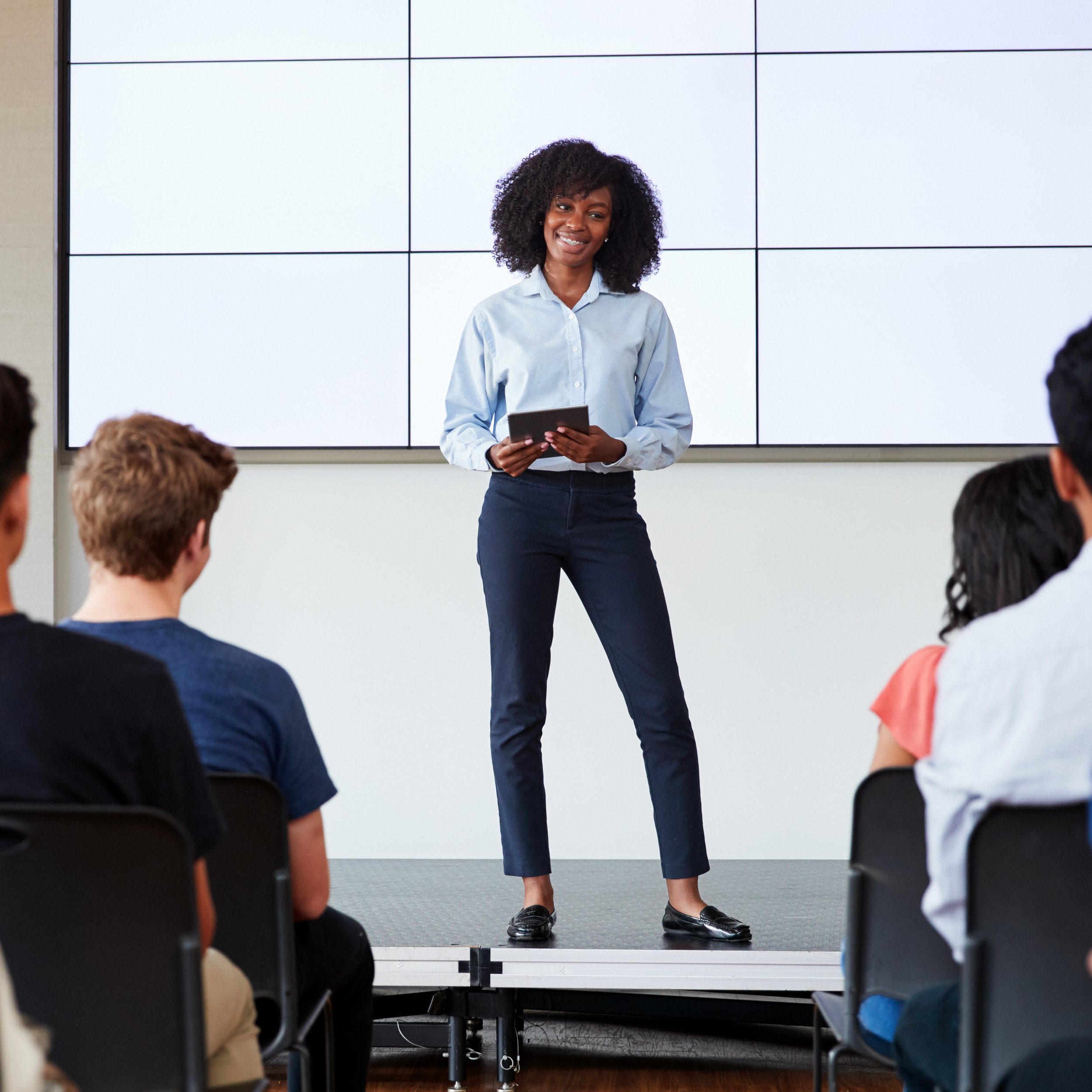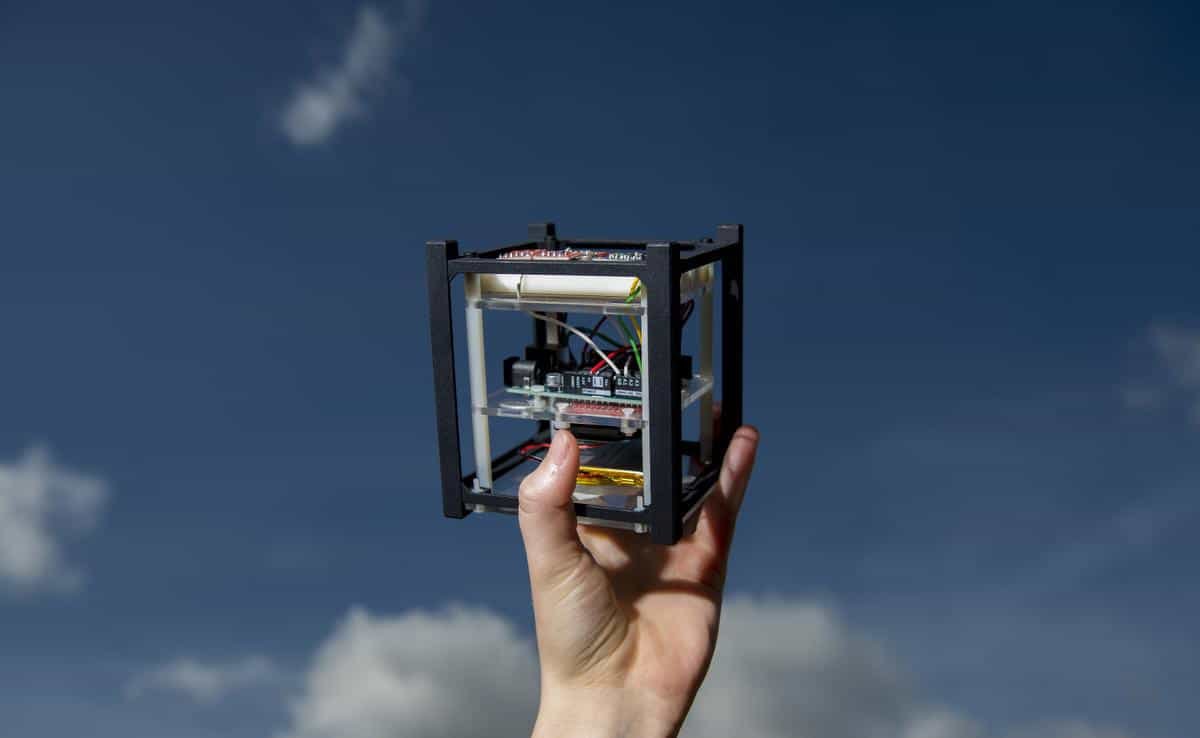NOF Explainer: Informative
Informative Speaking
Informative Speaking is often one of the first prepared platform events new students choose. The goal of an informative is to teach the audience something new about the world. Topics can range from new technology, social movements, trends, historical events, etc… the possibilities are really quite endless.
If you’d like to watch some sample informative speeches, here is the final round from the 2023 National Online Forensics College Championships https://www.youtube.com/watch?v=BugyrYMx2ag
You can read our full event description and rules in our bylaws. Here are the six most important characteristics of Informative Speaking for students to think about if competing in the event:
1. Topic Selection
It’s critical to select an interesting topic for your informative speech. It should be interesting to you as the speaker as well as interesting to your audiences. A great way to check for interest is ask your family & friends about the topic — if they seem interested and ask you follow up questions you know your topic is going to be solid.
2. Research
Platform speeches should include current research to support the claims you are making in your speech. A good rule of thumb is that you should have 1 source for every minute of your speech - so for a 10 minute informative, most speakers will have roughly 10 sources. That’s not an iron-clad rule but a good norm to follow if you are a beginning speaker.
One trick to make sure your topic is solid, is to set a goal of researching at least 20 articles within the past 12-18 months. While you will probably only cite 10 of them in your speech, if you can find 20 different articles you know your topic has a lot of information out there you can draw from.
If, while doing your research, you can’t find at least 20 articles, it’s a good sign you may want to find a different topic.
3. Organizational pattern
Now that you have a solid topic & have found plenty of research, the million dollar question becomes: how to organize your information? Almost all informative speeches will follow the basic speech outline of an introduction, three main points, and a conclusion. Some speakers may have two main points or four, but you will primarily see speakers with three main points.
Many speakers adopt a chronological organizational pattern organizing information using time. Imagine you are doing an informative speech on a new renewable energy technology. Your first main point may be about when it was first invented. Your next main point may be about its current applications. Your final main point could then be about future implications of the technology.
You can also use a structure-function approach. Your first main point describes the technology while your second main point explains it’s function or application. Your third main point can often the discuss implications of this new technology.
Finally, many speakers use a compare and contrast format. Most informative speeches are about improvements on existing ideas. You can compare and contrast the new idea with the existing solution.
One good trick for finding an organizational pattern is to observe how the authors of the articles you researched in step 2 organize the information. Each article you find is in a way an informative speech. If you start to see a trend you can sometimes use that same pattern for your speech.
Unlike persuasive, where most speakers adopt a problem-cause-solution pattern, informative can sometimes be more difficult to figure out how to organize the information.
4. Be Interesting
One challenge with informative speaking is making your topic as interesting as possible. You want to keep your audience excited and engaged for the entire speech.
It’s sometimes a tension between including important information versus interesting information. But it’s important to recognize that if you don’t have any interesting tidbits of information, your audience may get bored with your topic. Try to include at least one interesting piece of information in each main point.
For example, a former student of mine did an informative on cube satellites. In main point three, he added a story about a high school in Florida that launched their very own cubesat to take pictures of their high school from space! That was pretty near to find out and helped balance out all the more technical information in the speech.
5. Delivery
Once you have your informative speech ready to go — don’t forget to work on strong delivery skills.
Almost all informative speakers will memorize their speeches to show commitment to their judges. There is no shortcut when trying to memorize. A good metric I give my students is plan to spend 2 hours practicing for every minute of speech to get it memorized. So a 10 minute informative will take most people about 20 hours to memorize. You may be faster or slower, but make sure to give yourself enough time to consistently practice over a few weeks to get the memory down.
Next, you’ll want to think about vocal range, pacing, volume, eye contact, and gestures. The best informative speakers are engaging speakers who can teach us something new about the world while still entertaining us. In a competitive environment like forensics, strong delivery skills can set you apart from your competition.
6. Visual Aids
While not required, and not appropriate for all informative speech topics, many informative speeches will include visual aids. These can include graphics, charts, maps, pictures, etc that you show your audience.
Visual aids are a great way to show commitment since it takes a lot of time and effort to effectively use visual aids. They can also add interest and a change of pace for your judge who can look at your visual aid for a moment.
Visual aids can add a lot of difficulty to your speech - you have to know how to effectively incorporate them into your speech. Make sure to practice with your visual aid so you are ready to use them during the competition.
Note that for NOF tournaments, the use of electronic Visual Aids is allowed although it’s usually best to use poster boards to make it less technically difficult.
Bottom Line
National Online Forensics offers many different speech and debate events focusing on various areas of communication for students to practice and master. Informative speaking is a great first event for students to try out but also provides challenges for experienced students to choose topics that might be as common. Good luck to all the competitors competing in informative this year!
Please review the full event description in our bylaws.



